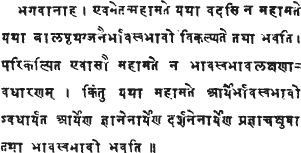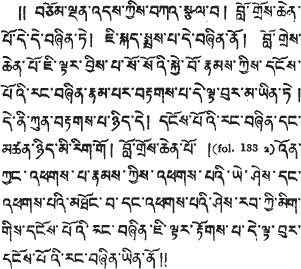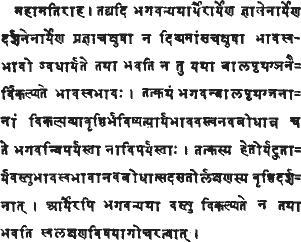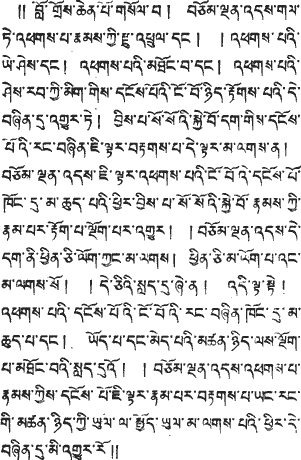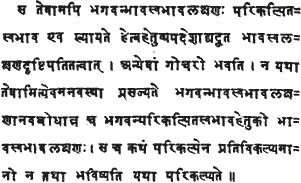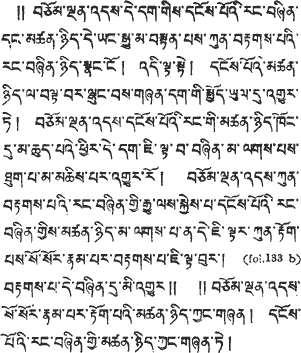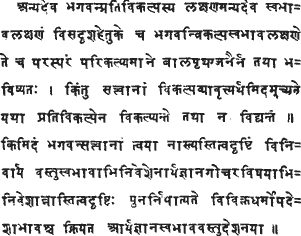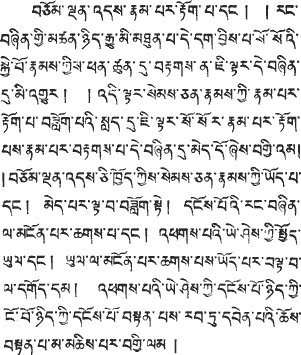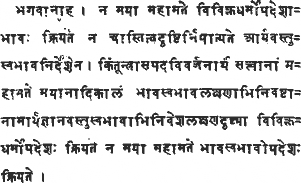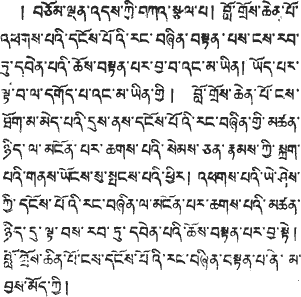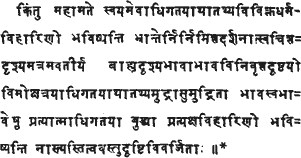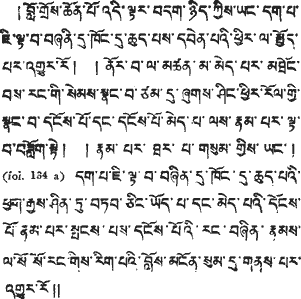LXIX
1
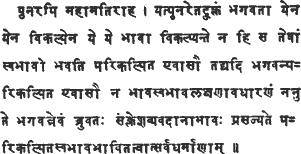
Further, Mahāmati said: According to the Blessed One, again, in all things that are variously discriminated by discrimination there is no self-nature, as it is nothing but [the creation of] false imagination; if, Blessed One, it is but [the creation of] false imagination and there is nothing in the world which is to be conceived as indicative of self-nature, does it not, Blessed One, come to this, according to your statement, that there is neither defilement nor purification, because all things are of the nature of false imagination?
LXIX
1
大慧復白佛言。如世尊所說。以彼彼妄想。 妄想彼彼性。非有彼自性。但妄想自性耳。 世尊。若但妄想自性。 非性自性相待者。 非為世尊如是說煩惱清淨無性過耶。一切法妄想自性。非性故。*
Mahāmati again addressing the Buddha, said: As the World-honoured One teaches, because of such and such imaginations, such and such objects are discriminated; but there is no such self-nature, only a self-nature as is imagined. World-honoured One, if there is only a self-nature as is imagined, there is no mutual reference among objects. According to this teaching of the World-honoured One, is not this fault committed that [the distinction between] evil passions and purity no more exists? Because all objects are characterised with the self-nature of imagination, and have no existence.
* Sung has 分別 for both vikalpa and palikalpita; 性 for bhāva, 自性 for svabhāva.
LXIX
1
大慧菩薩復白佛言。如世尊說。 以何等何等分別心。分別何等何等法。 而彼彼法。無彼如是如是體相。唯自心分別。世尊。 若唯自心分別非彼法相者。如世尊說 一切諸法應無染淨。何以故。如來說言 一切諸法妄分別見。無實體故。*
Mahāmati the Bodhisattva again addressed the Buddha, saying: As the World-honoured One teaches, because of what and what discriminating minds, what and what objects are discriminated; and yet such and such objects have no this or that essential nature, except that they are discriminated by one's own mind. World-honoured One, if there are no such objects except what is discriminated by one's own mind, according to the teaching of the World-honoured One, in all things there will be no defilement, no purity. Why? Because, teaches the Tathagata, all things are seen according to false discrimination and there is no reality in them.
* Wei has 分別 for both vikalpa and parikalpita, and 法 for bhāva, 體 or 實體 for svabhāva.
LXIX
1
爾時大慧菩薩摩訶薩復白佛言。世尊。 如世尊說。由種種心分別諸法。 非諸法有自性。此但妄計耳。世尊。若但妄計無諸法者。 染淨諸法將無悉壞。*
At that time Mahāmati the Bodhisattva-mahāsattva again addressing the Buddha, said: World-honoured One, according to the World-honoured One, on account of various minds, all things are discriminated, and there is no self-nature in all things. They are no more than false imaginations. World-honoured One, if there are only false imaginations and no realities, things defiled and pure will all equally be destroyed.
* T'ang distinguishes between vikalpa 分別 and parikalpita 妄計.
LXIX
1
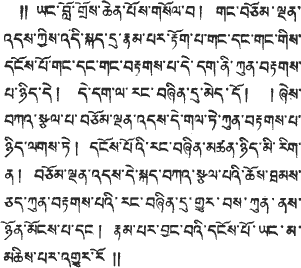
Mahāmati again asked: According to the World-honoured One, by such and such discriminations, such and such objects are discriminated. They are falsely imagined and have no self-nature. World-honoured One, if all things are of false imagination whose aspect of self-nature is unknowable, as the World-honoured One says, they being falsely imagined, there will be in them nothing defiled or pure.
